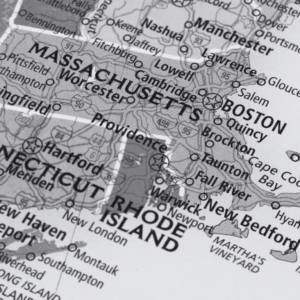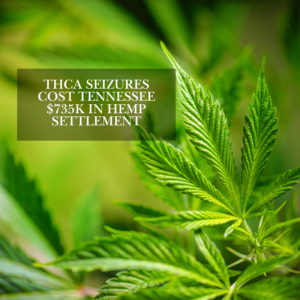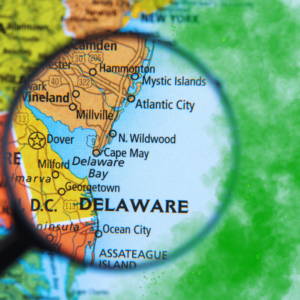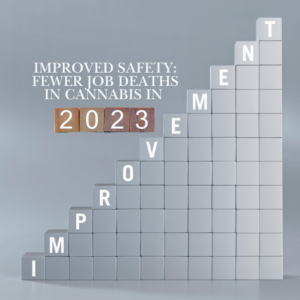Biden Under Pressure to Deliver on Promises for Cannabis Clemency

Biden Promised No Jail Time for Weed, He’s Running Out of Time to Pardon Cannabis Convicts
With President Joe Biden’s recent decision to withdraw from the 2024 election race, the clock is ticking for him to fulfill his promise of ending prison time for cannabis-related offenses. As his presidency enters a longer-than-expected lame-duck period, Biden now has a final opportunity to use his clemency powers to address a lingering issue: the thousands of Americans still incarcerated for cannabis crimes.
Biden’s Incomplete Cannabis Reform Legacy
President Biden has signaled cannabis reform as a racial justice priority, a stance aimed at energizing the electorate. His administration has made some progress, such as issuing mass pardons for those convicted of simple cannabis possession. In October 2022, Biden’s categorical pardons granted record relief to nearly 13,000 individuals for possession offenses. However, this effort has not extended to releasing people still serving time for nonviolent cannabis crimes, a glaring omission as roughly 3,000 individuals remain incarcerated in federal prisons for cannabis-related offenses.
Biden’s record on clemency shows room for improvement. Despite having received thousands of clemency petitions, his administration has only granted relief to 1.4% of them. More significantly, the president has yet to use his powers to commute the sentences of those currently in prison for cannabis convictions, leaving advocates and affected families frustrated.
Public Support for Clemency Grows
There is strong public support for releasing individuals incarcerated for cannabis crimes, especially for actions that are no longer illegal. A poll commissioned by the American Civil Liberties Union (ACLU) shows that 84% of registered voters favor releasing individuals serving time for crimes no longer considered illegal under current laws. Another poll by Data for Progress indicates that 72% of voters support Biden’s pardons for nonviolent cannabis-related offenses, while 62% believe state-level governors should pardon similar offenses.
This support extends across party lines, with governors in states like Maryland, California, and New York using their clemency powers to expunge cannabis offenses. In Maryland, Governor Wes Moore’s recent decision to pardon over 175,000 cannabis-related charges set a historic precedent. However, those incarcerated on federal cannabis charges, like Jonathan Wall in Maryland, can only receive clemency from the president himself.
Time Running Out to Fulfill Promises
As Biden’s term winds down, political analysts and advocates are looking to the upcoming months—historically the time when most presidential clemency grants occur. In the past, outgoing presidents have used their final months to issue sweeping pardons and commutations. In 2020, for instance, then-President Donald Trump commuted the sentences of 16 individuals for 27 cannabis offenses just weeks before the election, including the release of individuals serving time for nonviolent drug offenses.
While Biden’s administration has granted clemency to almost 13,000 individuals, the president has only issued 11 full pardons and commuted the sentences of five individuals for nonviolent drug offenses. Critics argue that this falls short of his campaign promise that “no one should be jailed for using or possessing marijuana.”
A List of Deserving Individuals Awaits Clemency
Advocates have presented Biden with a list of individuals awaiting clemency, many of whom have been incarcerated for decades. According to reports, nearly half of those on the list identify as Black, and their cases are now pending with the Office of the Pardon Attorney. These individuals remain behind bars for activities that are no longer criminal offenses, while others across the country are legally profiting from cannabis businesses.
Erin Haney, an advocate for clemency reform, highlights the injustice: “Many of these individuals could be released by President Biden with a simple stroke of a pen.” The list includes individuals serving long-term or life sentences for nonviolent cannabis convictions. The question now is whether Biden will act before his time in office runs out.
Securing Biden’s Legacy on Criminal Justice Reform
Biden’s clemency decisions will shape how his administration’s approach to criminal justice reform is remembered. Although legislative reforms remain necessary for long-term change, the president has a unique opportunity to provide immediate relief to those disproportionately affected by outdated cannabis laws.
As states like New York, California, and Minnesota continue to legalize cannabis, the political landscape around cannabis reform is evolving. In 2024, all major presidential candidates hail from states with some form of legalized cannabis, underscoring the mainstream acceptance of cannabis use in the U.S. This backdrop adds pressure for Biden to act swiftly.
Ultimately, Biden’s legacy on criminal justice reform will depend on whether he uses his clemency powers to release the individuals still imprisoned for cannabis offenses. With time running out, now is the moment for President Biden to keep his promise and ensure that no one is incarcerated for cannabis use or possession.











